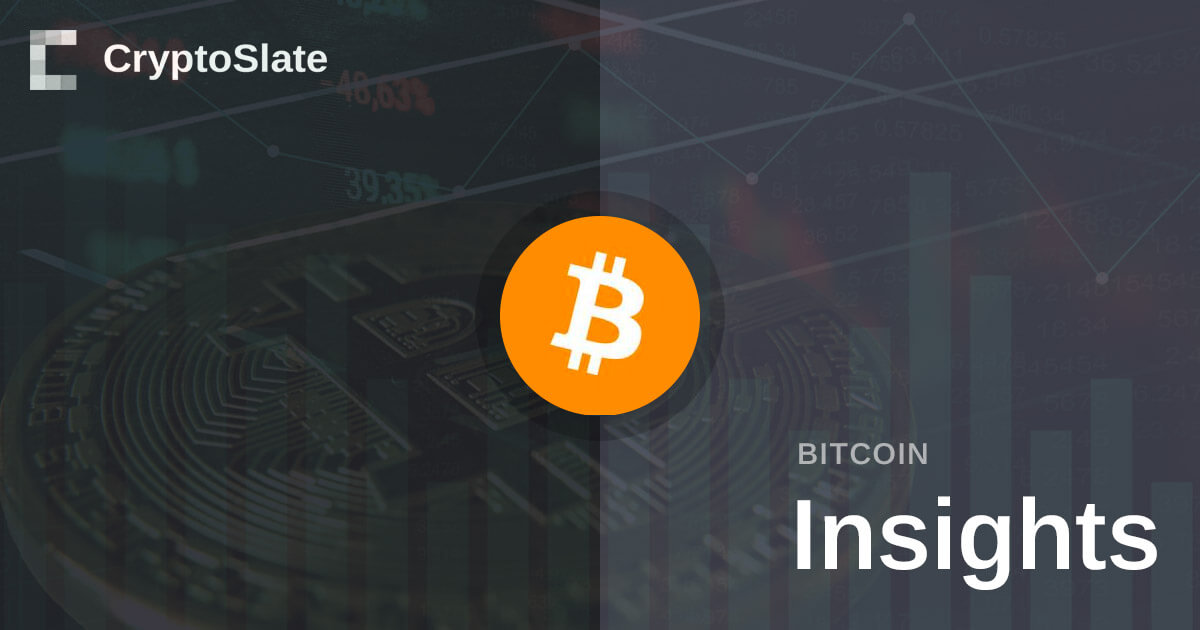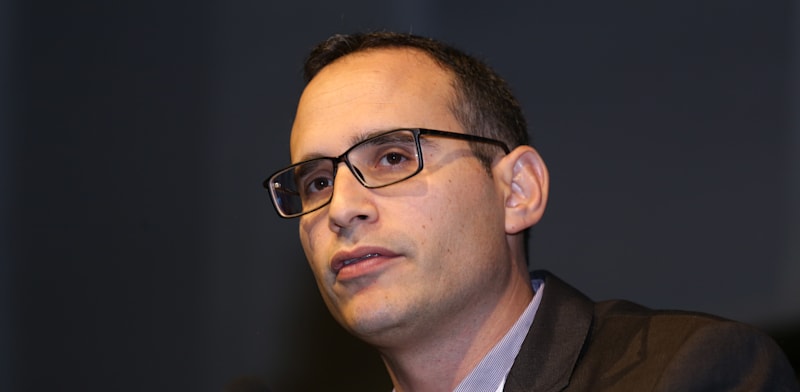The “frozen” housing market is about to get blowtorched as competition is set to heat up in 2024. With lower mortgage rates, bigger investor tax benefits, positive economic sentiment, and tight inventory, homebuyers will need to act fast unless they want to make the same mistakes of 2021 and 2022. Are the bidding wars and price hikes coming back? Will we look back at 2023 as an “affordable” time to buy a house?
Welcome to the first On the Market Headlines Rumble Show! We’re putting Dave, Henry, James, and Kathy in a metaphorical cage match as they each bring hard-hitting headlines to knock each other out with bigger and better news. No physical punches will be thrown, but psychological piledrivers will be aplenty in today’s show.
We’ll talk about the “frozen” housing market reigniting in 2024 due to stiff competition, low inventory, and falling mortgage rates. Next, why Americans are giving up on college degrees and going straight into employment. A MASSIVE investor tax write-off could make a comeback as bonus depreciation goes BACK on the legislative table. Plus, why Blackstone, everyone’s favorite hedge fund, is buying BILLIONS of dollars in housing in the US and Canada.
Dave:
Hello everyone. Welcome to On the Market. I’m your host, Dave Meyer, and today we’re going to try a new format for the podcast, and we’re calling it the Headlines Rumble Show. And to help me out with that, we have Kathy Fettke, Henry Washington, and James Daynard joining me.
Did any of you guys watch WWE or WWF when you were a kid or now maybe you still watch it.
James:
Huge fan.
Dave:
Currently? Currently a huge fan?
James:
No, when I was a kid I had matching outfits with my buddy and we had our own tag team. I’m not even going to go what the name was, but it was something else.
Dave:
Please don’t. We’re going to have to bleep it out.
Kathy:
We need these photos.
James:
Yeah, I was a big Bret, the Hitman Heart fan.
Dave:
Oh, yep, of course.
Henry:
Dude, I was so into WW, it was WWF back then. But yeah, my dad used to always order the pay-per-views and we’d sit there and watch them. And every place I went to that had face painting, like for little kids and girls, I would get Ultimate Warrior face paint every time.
Dave:
Oh, that’s awesome.
James:
The greatest.
Dave:
Just by the fact that you called it Pay-per-view, because that’s what it was, just dates us all so much that we remember what Pay-per-view was.
Henry:
Now everything is Pay-per-view. FYI.
Dave:
Yeah, I guess that’s true. Well now James and Henry for being fans and anyone else listening, you might recognize this format. We’re calling it the Headlines Rumble Show.
It’s kind of like the Royal Rumble from professional wrestling. And basically the way it’s going to work is each panelist is going to bring a headline and we’re going to put two of them head to head.
So we’re going to start with two different headlines, vote which one is best, and then discuss that one for three minutes. And then after three minutes, a new headline will be presented and we can decide do we want to bring in the new headline or do we still want to continue talking about the first one?
Perhaps because more important or you have more to say. The idea behind this is to narrow down all the headlines we brought to the most important topical information about real estate, about economics. So that makes sense to you guys?
Henry:
Yeah.
Kathy:
I feel like I’m in a disadvantage because I had three sisters and we weren’t watching WWF, but hey, let’s do it.
James:
Let’s rumble.
Kathy:
Let’s rumble.
Dave:
All right, let’s rumble. All right, Henry, you are getting tagged in first. So what is your headline?
Henry:
Yes. First headline I have here is, Three Reasons Why The Frozen Housing Market of 2024 is actually more competitive than before the Pandemic, Zillow says.
Dave:
Okay, and that’s going up against Kathy. Kathy, what is your headline?
Kathy:
Mine is Invitation Homes to Pay 3.7 million in California Rent Gouging Case.
James:
I’m going with Henry’s.
Dave:
I’m also going with Henry. I don’t want to hear about invitation homes.
James:
And also what’s new? California over-regulating the landlords. This is not a new story, this is just what it is.
Dave:
Well we can’t talk about that.
Kathy:
This is why it matters to the listeners.
Dave:
You can’t talk about it Kathy.
Kathy:
See, I told you I don’t know this rules.
Dave:
Henry, your turn you win. Why do you bring this headline Henry?
Henry:
Well, I brought this headline because as we all know, the Fed said they were going to lower rates this year. And as investors, all of us, I think we’ve all shared the sentiment that as rates come down, more buyers are going to enter the market.
And so we know that that’s going to create another pandemic-y pre-pandemic kind of rush into the market. And so I thought this kind of fit along those lines, but what this article is saying is that the U.S. Housing market, despite having low inventory levels and high mortgage rate and rising home prices, remains super competitive.
And that it relates this to three factors. The first factor being faster home sales. So it says now that homes are selling 50% faster than pre-pandemic norms. So if you think before the pandemic, what did the market look like when we all thought it was a very normal market and now homes are selling faster than that.
The second point it brings up is that there’s stiff competition due to limited inventory. And we all have been talking about this since the inception of this show. We know there are not enough houses, particularly single-family homes for the amount of people that want to either buy or rent homes. And so that creates competition because everybody’s bidding for these same homes. I’m starting to see even more headlines of hedge funds buying single-family homes again.
So the rates are coming down and everybody’s starting to start to snap up what’s out there right now. And so the limited competition, but that’s going to drive prices up. And then the third point is the impact of increased home values and mortgage rates.
So as we all know, all of these things are going to lead to home values rising, but what the article is saying is that the typical mortgage payment was up 7.5% year over year in December 2023 and 106.5% higher than the pandemic average.
So I don’t know that we’re going to see any cooling anytime soon if rates drop or continue to drop, because they’ve already dropped some.
Dave:
That’s something interesting you said Henry, I hadn’t really thought about that. That days on market, which is how we measure how quickly home sales have fallen a lot over the last couple of years. And I wonder just absent of normal market dynamics, if that is now embedded into the psychology of home buyers, that even if the market, there’s more inventory or more supply coming online, if people are still going to act with quickness now and try and bid because the last couple of years that was necessary and people now think that that’s normal.
Henry:
Yeah, that’s actually a good point. And I think a lot of people have, what’s that when you slap someone’s hand and they get to their points and pull it away.
Dave:
All right.
Henry, we’re cutting you off unfortunately. Maybe we have an opportunity to keep talking about this unless James’s headline beats you out. James, what’s your headline?
James:
My headline is mortgage applications for new homes soar year over year despite a seasonal dip.
Dave:
Okay, Henry, Kathy, what do you want to talk about?
Kathy:
I agree that that’s a good headline, James, but it kind of falls into Henry’s. So I think we just have to stick with Henry’s like what is going on?
The bigger picture. It’s not just new homes, existing homes, sales are definitely down from where they were, but it’s really interesting to look at before the pandemic and are we really selling more homes than we did then We get so used to just the last few years without looking at the bigger picture a lot of times.
So I’m sticking with Henry’s.
Dave:
I’ll just stick with Henry’s too. I want to hear, hear what Henry was about to say. So we’re just going to vote you down, James, and Henry, you’ve got the floor once again. And remember who voted for you Henry, because me and Kathy have more headlines come up.
Henry:
All right, yeah, Dave, to your point, I think a lot of people, I would say the majority of first time home buyers don’t know what it was like to buy a home pre-pandemic, right? And the majority of second time home buyers are now hitting a time period where they probably bought their first home around pandemic time, maybe just pre-pandemic. So people don’t really know what the market was like before everything got crazy.
If they’re only buying their first maybe their second home and if they’ve gotten their hand slapped every time they were putting in offers before, that’s probably the way they’re going to treat this new market. Even if their seasoned agent is telling them, Hey, we don’t have to do that right now.
They don’t want to get beat out if they fall, and remember, home buyers who are not investors are not buying based on numbers like investors are. They’re buying based on emotion and on what fits their family and that’ll always cause them to want to maybe bid more than maybe what the house is worth because they don’t care what it’s worth. They care, this is what my family needs.
Dave:
Do you guys think we’re going to get in this situation where if a house sits on the market for more than seven, it either goes within seven days or it’s going to sit on the market for a really long time because people think it’s spoiled and we’re going to have this polarization of how long houses stay on the market?
James:
Yeah, I think right now when you’re listing properties, if they sell on that first weekend, they’re actually getting very, very competitive multiple offers. But I do find this article kind of funny because it’s a frozen market that’s kind of hot at the same time, it’s competitive.
So it’s like what does that even mean? Talk about confused buyers. But I feel like in today’s market we saw the rates skyrocket, the market did not collapse, median home price went up, and now the buyers are that great migration that goes on in Africa where the buffaloes are just kind of hurting and that’s what’s happening.
And every time you see a sale on the market, the buyers get a little bit of FOMO and it gets hot real quick. It’s like every data point that absorbs and there’s so little inventory, it only takes one. And we’ve seen this pretty consistently, even on our town home sites we’re selling, they’ll sit on longer than seven days, but then one clicks and they all go.
It’s a domino effect. And so I think if you hit that seven-day window, you’re good, but if not, you reposition your listing and they still come back as well.
Kathy:
Yeah, and it just depends on price point and affordability in the area. If it’s priced right, it’s going to go quickly and if it’s priced wrong, people are going to have to adjust. There’s still some people who think their houses or the property’s worth more than maybe it is, but properties, again, if they’re priced right, they’re going to go really quickly. And affordable housing is what’s needed most.
Dave:
It’s funny because back in the day I feel like it was 60 days is when a house would start to get a little bit stale. So now it’s just funny to think that if the house has been sitting on the 10 days, you’re like, oh, there’s something wrong with it, I don’t want to even touch that.
Or at least like a home buyer would. An investor’s probably like that’s what I want. But it’ll be interesting to see if supply comes back, if some of the other parts of the market return to normal dynamics or if we’re permanently now in this very altered state.
All right, the next headline is mine. I wanted to switch it up and not talk about the housing market. So mine is that Americans have lost faith in college. So do you guys want to keep talking about Henry’s or do you want to talk about Americans losing faith in college?
Kathy:
Well Dave, I just don’t know what that has to do with on the market. So I’m going with Henry’s.
Dave:
That’s fine. James?
James:
I think we can beat this frozen market to death at the end of the day, there’s nothing for sale. I’m going to go with, I want to switch the conversation. I want to hear some college, why people don’t want to go to college.
Henry:
Yeah I do. I want to hear about college because this is kind of a hot button topic for me. I’ve had some opinions about this myself, so definitely want to hear about this.
Dave:
Now I definitely want to do it. I want to hear your opinions. Well there was a recent article in the Wall Street Journal called Why Americans Have Lost Faith in the Value of College. And personally I just found this interesting just being a millennial, I feel like growing up you were just hammered into your head that you had to go to college and that was the only way to get ahead.
And now people’s opinions of that are really changing. In the last decade, the percentage of Americans who say they have confidence in higher education fell from fifty-seven percent. So the majority, down to thirty-six percent in just 10 years, which is a lot.
What’s crazier to me is nearly half of parents say they would prefer not to send their children to a four-year school after college. And two-thirds of high school students think they’ll be just fine without a college degree.
So to me that just sound crazy because I grew up in a different sort of environment I guess. But I’m curious what you guys think because personally college was very valuable to me and what I learned and matured a lot.
But was it valuable? $250,000 valuable? I don’t know. I think that the price has gone up so much that even though you learn something, these sort of cost benefit analysis has really, really changed. So curious what you guys think.
If you can get a good job, have a good career without college or you still need to go. Henry, you teased your opinion so I got to hear them.
Henry:
Oh man. Oh man. Look, I think that what was valuable about college before is that most of the employers who were going to offer jobs saw value in that person having a degree. And so it made it very difficult to get a high paying or a well paying job if you did not have a college degree because that was one of the first things, some employers wouldn’t even consider your application if you didn’t have a degree.
And it used to be that they wanted a specific degree, your degree had to be in whatever field that that job was in. And as time has moved on, and access to information has become more convenient with the internet and online. And one thing a lot of people don’t talk about is the pandemic forced everyone to get comfortable with online education. Right around the time of the pandemic, not everybody was comfortable going to school online.
There were some institutions who had online classes and some didn’t. There were weren’t as many online gurus “teaching things,” because not everybody was comfortable paying somebody some money to teach them something. Well, the pandemic forced everyone to have to learn online. It kind of fast forwarded that industry quite a bit.
And so now you can get an education as valuable or if not more valuable than college for a fraction of the price if it’s concentrated in one particular industry. And so all that to say, is that businesses have now started to notice that some of my best employees don’t have a college degree.
Dave:
Oh god, this is so ruthless. I wanted to hear what Henry had to say. Henry, now you have to propose another one. So what’s yours?
Henry:
All right, the headline I’m proposing is Congress Proposes Tax Breaks and Significant Limits on the ERC.
Kathy:
Oh yeah, yeah. I want to talk about this. This is good. I want this.
Dave:
I’m going college. James, what do you think?
James:
I’m kind of sticking on college.
Kathy:
Oh man.
James:
I think there’s important things people need to think about about attending college.
Kathy:
Oh, but the tax breaks, man. The tax break. Wouldn’t you like to get the hundred percent right off back, find short-term rentals.
Dave:
Henry, do you want to finish your own thought or do you want to move on? This is going to come down to you.
Henry:
Oh, okay. Let me take my own bias out of it. Our listeners are probably seasoned real estate investors and so they would probably care more about the tax benefits, but man, I would love to talk about the college. Maybe we needed to have a whole show dedicated to this so I can get on my soapbox.
Dave:
You can’t talk about it anymore. Henry. Forget it from your mind. Talk about tax breaks. Go.
Henry:
Oh man. So the Senate Finance Committee and the House Ways means committee have proposed a bipartisan tax legislation framework with significant changes to the tax code. This includes modifications to the employee retention credit, and in the article they break down what each one of these major changes are.
But let’s be serious guys. There’s only one of them in here that we all want to talk about.
Kathy:
Yeah, let’s talk about it.
Henry:
And those are the changes to the bonus depreciation Section 168K. It extends the ability for businesses to claim 100% bonus depreciation for investments. So we were losing bonus depreciation slowly year over year with it supposedly being phased out by, what was it, 2026 or 2027. We weren’t going to have bonus depreciation anymore. And now this proposal would bring back 100% bonus depreciation retroactively for 2020.
Kathy:
Bring it back baby.
Henry:
We can go back to last year and get a hundred percent bonus depreciation. And I don’t know about you guys, but I need that.
Dave:
So explain bonus depreciation, what it is. So if people don’t know.
Henry:
So bonus depreciation, in a nutshell is every asset has a useful span. Everything is returning to the dirt essentially, right? So everything is depreciating and so there is a scale at which each individual item depreciates, some depreciate over longer periods of time, some depreciate over shorter periods of time. What the 100% bonus depreciation does is it allows you to take all of that depreciation and use it as a write-off in year one.
Dave:
Got it. And so it was being phased out now it seems. Has it been voted on or is this just there’s bipartisan support for this?
Henry:
I don’t believe it’s been voted on. I just believe it’s been proposed and yes, and I would argue that everybody who would be voting on this owns assets. So we’ll see how it goes.
Kathy:
It does say bipartisan in the article so that yes, I agree with Henry that I think the politicians would like this too.
James:
I think the big thing about the bonus depreciation is it will bring a more surge to the multifamily market. The big benefit of bonus depreciation is on your big income years you can drive down. I know for me when I’m having large income years, I’m chasing that bonus depreciation. I’m trying to get my tax liability down.
And so I think it could be bring another surge of investors trying to place money, offset their gains and it could actually grow the multifamily space pretty rapidly again.
Dave:
James, have you ever had not a low income year?
Henry:
If he did, I would argue that the number, he would say that low-income year would not be considered a low-income year for me.
Dave:
Still better than my best year, probably.
James:
2008 was definitely a low-income year.
Dave:
Okay, fair enough, fair enough. So we have to move on to our next headline. Kathy, can you unseat Henry please?
Kathy:
Okay, we’ll just go with U.S. single family housing starts plunge in December.
Dave:
I’m voting for you Kathy because Henry’s on a roll and we got to take him down a peg.
Kathy:
Thanks guys.
James:
Yeah, I’m voting for Kathy’s just because we started a bunch of new construction projects, so we got it ripping.
Dave:
All right, Kathy, why’d you bring this story?
Kathy:
Well, I brought this up because we need new supply for prices to come down and stabilize. And so when you see headlines like U.S. single-Family Housing starts plunge in December, that exacerbates the problem.
And I know that California’s coming out with a lot of new legislation to make it easier for new homes to be built, and specifically affordable homes. It’s so hard to build homes cheaply these days. And for the average person who really needs it to not be a multi-million dollar home.
But starts did plunge. And right here the article says, single-family housing starts, which account for the bulk of home-building fell 8.6%, to a seasonally adjusted rate of one million twenty-seven units. So twenty-seven thousand units. So this is well below where it needs to be.
Multi-family starts have come down as well. And a lot of this has to do with the high cost of borrowing. It’s so expensive to get construction financing that builders just backed off, but hopefully in 2024 this will change now that we’re seeing a reversal, a Fed reversal, the Fed pivot potentially cutting rates next year and hopefully the cost of borrowing coming down as well.
Dave:
James, you said you’re building though, so you, you’re bucking the trend.
James:
Yeah, I think the big key to this stat is, I mean the reason housing starts are down, is the permit timelines have taken a lot longer when you’re trying to do density. When you’re a builder, the more density you’re putting on, the longer your permitting takes.
And with the cost of money being at it’s all-time high for developers, or not all-time highs, but all-time highs in the last 20 years, people have avoided those projects, and what’s happened is the confidence has been coming back and builders are selling their product off. The sellers have also changed their mind on how they’re negotiating terms.
And so what’s happening is as a developer, you can get permitted sites closed, which adds more in the pipeline. And so there’s this gap in time, but that gap in time is going to make the market rip because there’s going to be a shortage for this nine-month window.
Henry:
I think one of the things that’s been holding up new home construction is the high interest rates which make the holding costs on the land. So if you’re building density, you got to buy a big swath of land and it takes a long time from purchase of that land to when you’re actually selling homes and making, and getting some money.
And so those holding costs are eaten up builders. I’m buying two single family homes right now from a builder because he needs to take the money from these two singles and use it to hold onto another more large scale project that they’ve got going on.
So as interest rates come down and the holding costs come down, you’ll start to see more builders enter the market because they can afford to hold onto some of that land and they’ll be able to sell off their existing projects and put more capital in their pockets so they can continue to build.
Kathy:
And this article also shows that-
Dave:
Oh, all right. Well then this is an opportunity for James to get on the board. James, what’s your second headline?
James:
Second headline is Blackstone is back. Blackstone is moving back into the rental homes.
Kathy:
I vote for this one.
Dave:
Okay, Kathy, you’re satisfied with your own one headline run. James, you’re voting for yourself. I’m just going to vote for this too, but Henry, just for the record, which one would you have voted for?
Henry:
I don’t really care about Blackstone, so I would’ve voted to stay on topic.
Dave:
All right, well then you’re going to have to listen to us talk about something you don’t care about. James, go ahead. What’s this headline?
James:
All right, so I think this is a fairly big headline because Blackstone acquired Triclone, which is a huge single family housing investment company. They’re public and now they’re taking them private again, they paid $3.5 billion because they just can, and…they just write the check, no big deal.
And the thing is they are taking over a billion dollars in development pipeline, and to where they’re going to be bringing it to market. So this purchase of the portfolio is not only in the US but it’s also in Canada, which I think makes them the largest single family home buyer and owner in North America because they’re also picking up $2.5 billion in apartments from Canada.
And the reason I think this is so important is, I will say I can confidently, I feel confident that the guys in the back in Blackstone are much smarter than me, and they know how to read data better, they know how to forecast better. And when they can move that kind of money, they can also move things.
They can kind of change the market and it’s a big sign if they feel confident in the single family housing market that we could see. I think we’re seeing a drastic improvement because they did cut off, as far as I know, they were not acquiring for the last 12 to 24 months, and that’s a huge faucet they just turned on.
Dave:
Well, I’m sort of with Henry saying he doesn’t care about these things. It’s not like it’s not interesting. I just think people really overestimate how important this is to average investors because they own one to 3% of houses.
So if you’re in a market where they’re actively buying, it certainly matters, but it’s never really impacted me and it’s not going to impact I think investors on any sort of national scale.
Henry:
Yeah, I agree with you Dave. And what I do think it means for the average everyday investor is you’re supposed to follow the whales if you want to make money. And if you remember before interest rates started to go up on this show, we were talking a lot about how single family homes are the new cool asset class.
They weren’t cool before, but now that inventory is so limited, they were starting to become cool again and then all these hedge funds started to notice that and started to snap them up.
So this should just be your sign as an investor that hey, these whales are buying these properties. So holding onto something that is of limited inventory is always going to net you some money in the long term.
Kathy:
Yeah, if the headline said, Blackstone’s dumping 38,000 US rental properties, that would give us all a moment of pause, but it’s the opposite. And that was always a fear is that these big hedge funds would just dump all their properties all at once, which they would never do.
Why would they do that? That would only hurt them and the value of the properties. But this is evidence that that’s not what they’re doing. They’re back in.
Dave:
All right, last headline is mine. And again, I just did something not housing related. It is, Americans are suddenly a lot more upbeat about the economy. You guys want to talk about Blackstone or the economy? Henry, what’s your vote?
Henry:
The economy.
Dave:
James?
Dave:
I’m going to go with the economy.
Kathy:
Yeah, Dave, you got a hundred percent here. You are the winner.
Dave:
Okay.
Kathy:
Look at you.
Dave:
The fact that I just won on this is very surprising because at least on Instagram or YouTube, anytime I talk about anything positive, it never gets any views. People only want to hear something negative. So I appreciate you guys giving some space to hear something positive.
And that is that the consumer sentiment index has really spiked up over the last couple of months. We’ve talked about this a little bit on the show, but the University of Michigan takes a consumer confidence poll, consumer sentiment index every month. And for a while it was really low.
So just for an example, in June of 2022, it’s the lowest it’s been since the year 2000. It was at a reading of 50, which is like half of where the index is set to, now it’s climbed all the way back up to almost 80. And it’s important to note that this is still below where the index was from 2012 to 2019, but is a big improvement of where we’ve been over the last two months.
And this tends to be a good sign for the economy because when people are feeling good, they spend more money, which spurs the economy. Obviously that could mean more inflation if they spend too much money.
But what do you guys make of this? Is this good news in your opinion?
Kathy:
Yeah, I was kind of surprised to hear that because there’s been so much negativity and so much fear that there’s a recession looming that recession didn’t happen in 2023. They’re talking about 2024, but there’s really no sign of it yet.
There’s been wage growth and now inflation is down. So the wage growth is above inflation. So maybe that’s it. They’re making more money than the prices are going up now, just recently. So maybe they’re spending more.
James:
And we like that they’re spending more, especially if you’re a flipper or a developer, because the more positive people are about the economy and the outlook and what they’re feeling. I mean, one thing I have learned since this pandemic is our economy is very emotional, and it goes in waves.
If the general sentiment is that everyone’s feeling good, you just see a lot of competition people, I hate to say this, but get a little bit more careless with their spending. And then for us as investors, it allows us to sell them for more. And so anytime there’s a positive light, it’s just good. It makes things transact more. We might see more inventory out of this because people think they can actually go onto another house and they don’t feel trapped.
And so it can loosen up the inventory as well. Perception is key. And I think this is a very positive sign, at least in the short term. It is a very 30, it’s very surgy, so who knows, they might hate it next month, but as of this month, that’s a good sign.
Dave:
I think we’ve been talking about it for a while that at a certain point people just get used to the new reality and inflation was really bad. It’s still a little bit higher than the Fed wants it to be, and it’s still painful for people because inflation was way higher than wage growth for a while.
And so people were losing power, but people get used to it. And as Kathy said, that has reversed for the last couple months. It’s just a little bit above it, but it does make a difference. And the article also does point to gasoline prices going down, which always has a big impact on business, but a lot on consumer feelings is how much they’re paying at the gas pump.
And since those have come down, that’s probably contributing to some of this positivity.
Henry:
I’m looking forward to it. Not because, well, obviously I’m looking forward to it because I feel like my homes that I’m selling will sell for more and sell faster, but I’m also looking forward to it because I believe it’s going to open up access to money. I think people are going to want to have their money out there and working as they feel more confident in what’s going out there.
And so I want to use it as an opportunity to start to secure private money funds that I can use on rainy days. And I want to start securing more local bank funds and deploying those so that I’m able to build up access to money in a time where people feel confident so that if things change, I’ve now built up my buying power.
Dave:
Now that’s just a good idea. Get some dry powder when people are feeling good. All right. Is that the end to a rumble? That was the most peaceful end to a rumble I could imagine. We were all just like, yep, we’re done.
Kathy:
I think we have to learn to fight more, you guys.
James:
You know, maybe we should be allowed to a counter argument to change everyone’s mind, so it’s little bit more, a little bit more rumbly.
Henry:
A little bit more funny.
Kathy:
Yeah.
Dave:
Someone has to play devil’s advocate. That might be fun.
Kathy:
Oh yeah. You know what? That’s actually something we do at Real Wealth is you have, everybody wants to be so agreeable, so you have to assign somebody to disagree with everything and poke holes in everything because yeah, it’s too easy to do the group agree.
James:
That’s what they call the heel in WWF. It’s the bad guy.
Kathy:
The bad guy. All right.
Dave:
I have a few friends who would be perfect for that job who just disagree with everything in front of them. They would relish that opportunity.
Henry:
And for those of you listening right now and you’re wondering, is this really how they come up with show ideas? The answer is yes. This is literally us figuring out, we’re going to have new show ideas. You’re welcome for the behind the scenes look y’all.
Dave:
Okay, so next episode, we’re going to have someone play the heel. We’re all going to be wearing Luchadore costumes and it’s going to be an actual physical brawl.
Well, in reality, we would love to know what you think about this episode. We are always trying to think of new fun ways to share information with you. So if you like this episode and you’re watching it on YouTube, shoot us a comment below or leave us a good review on Apple or Spotify if you like what we shared with this episode.
We really do appreciate those positive reviews. Kathy, Henry, James, thank you all so much for joining us and thank you all for listening. We’ll see you next time.
On The Market was created by me, Dave Meyer and Kailyn Bennett. The show is produced by Kailyn Bennett, with editing by Exodus Media. Copywriting is by Calico content, and we want to extend a big thank you to everyone at Bigger Pockets for making this show possible.
https://www.youtube.com/watch?v=59uLoi8sNvE123
Help us reach new listeners on iTunes by leaving us a rating and review! It takes just 30 seconds and instructions can be found here. Thanks! We really appreciate it!
Interested in learning more about today’s sponsors or becoming a BiggerPockets partner yourself? Email [email protected].
Note By BiggerPockets: These are opinions written by the author and do not necessarily represent the opinions of BiggerPockets.














